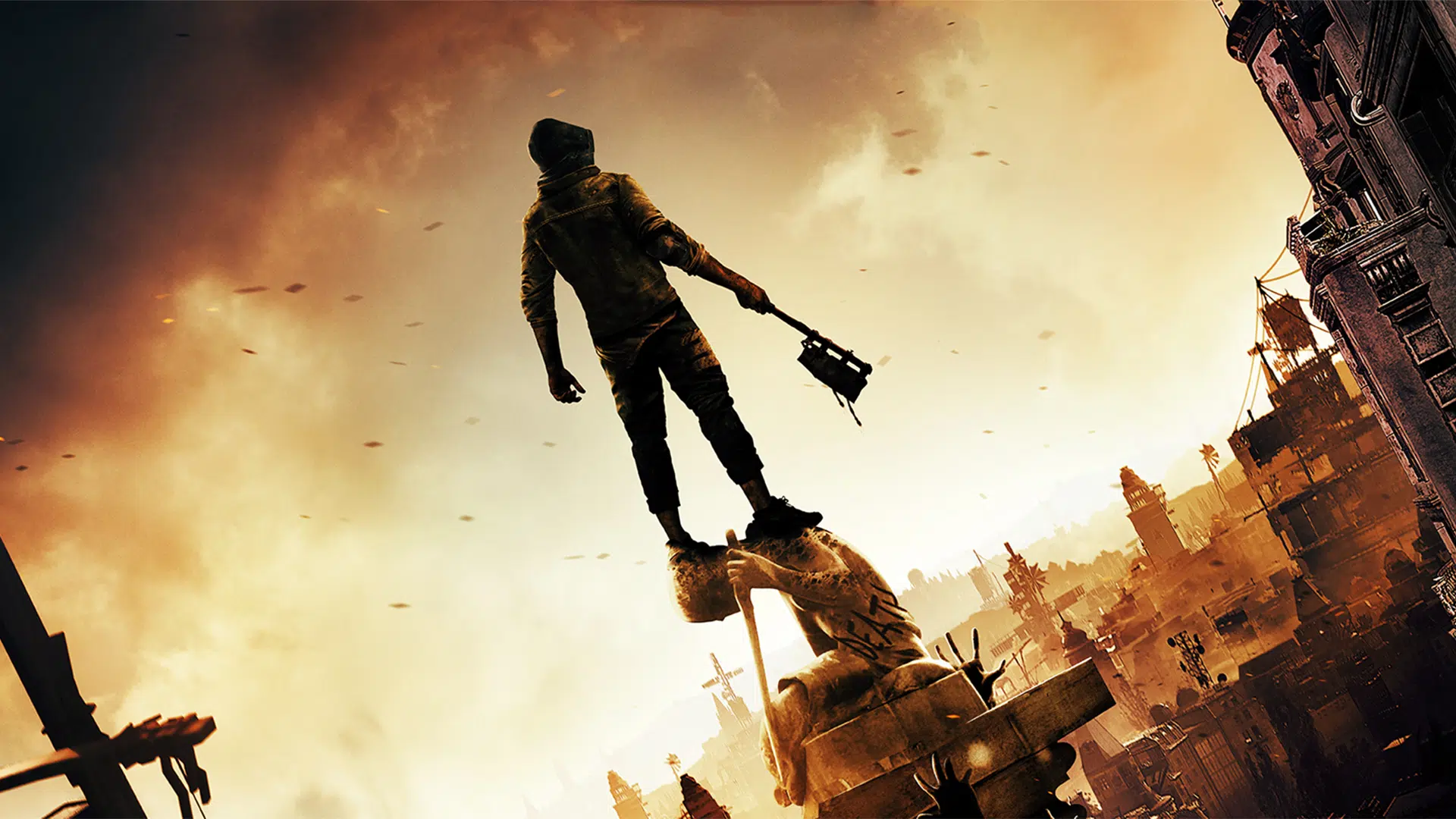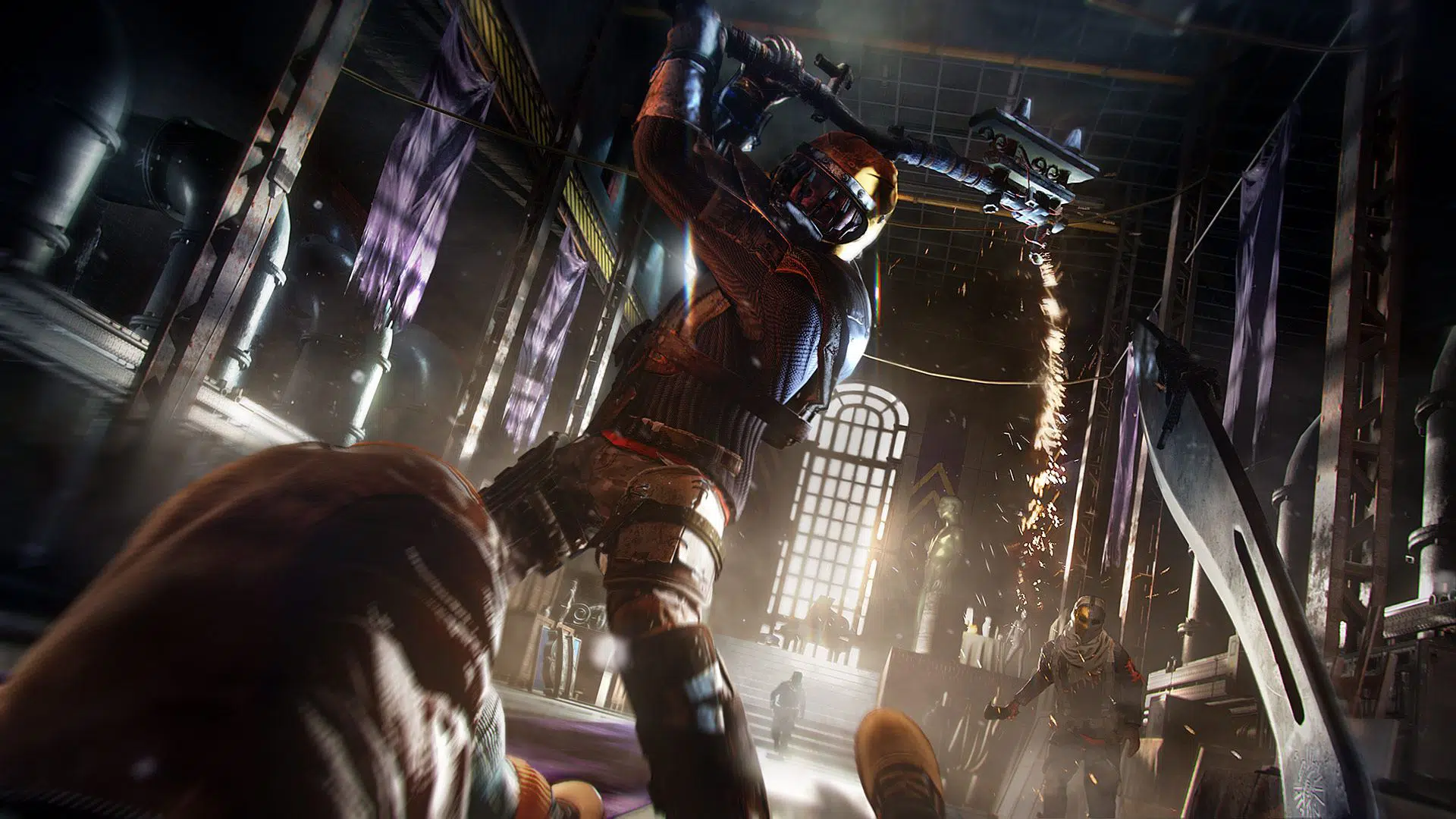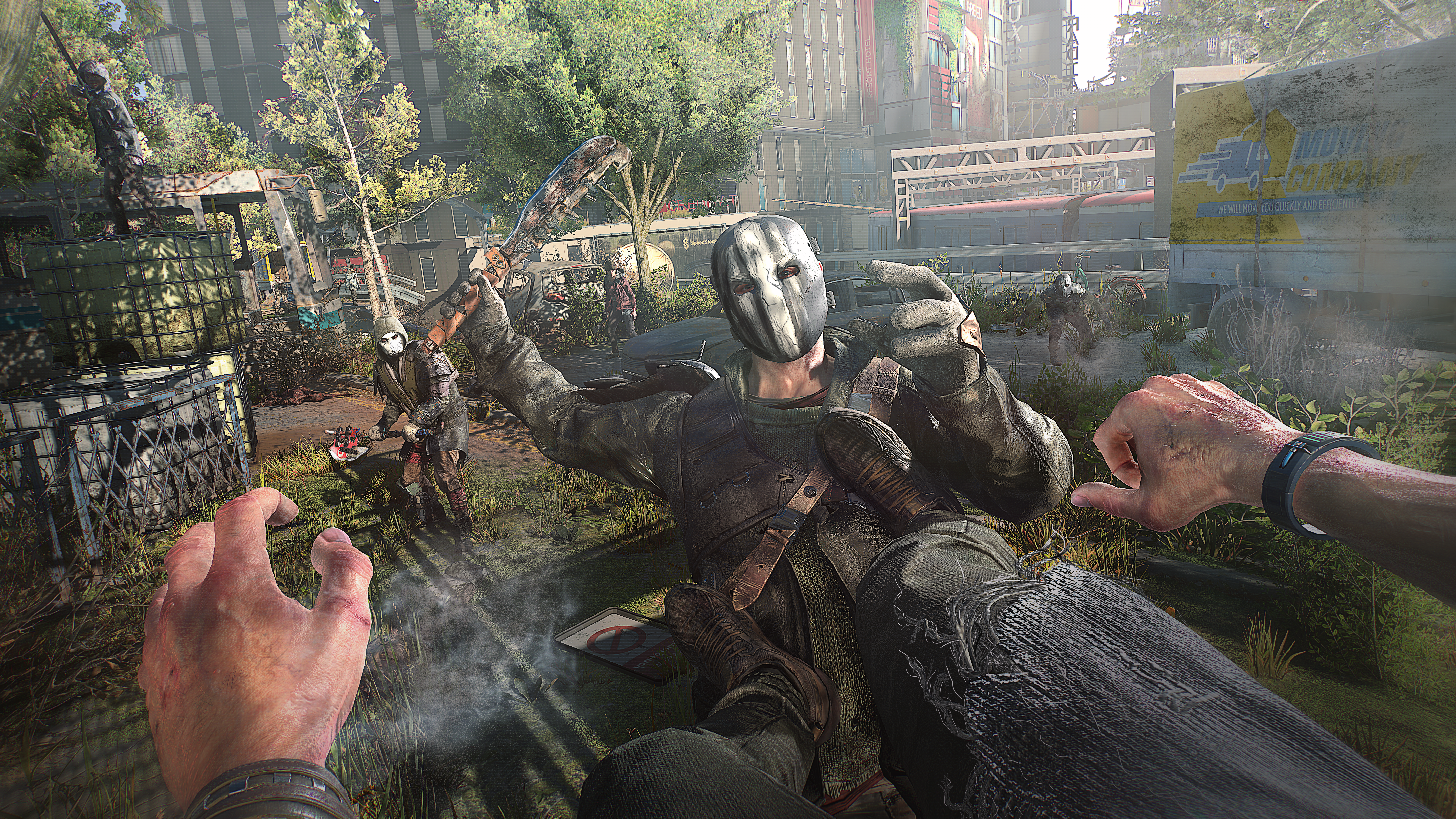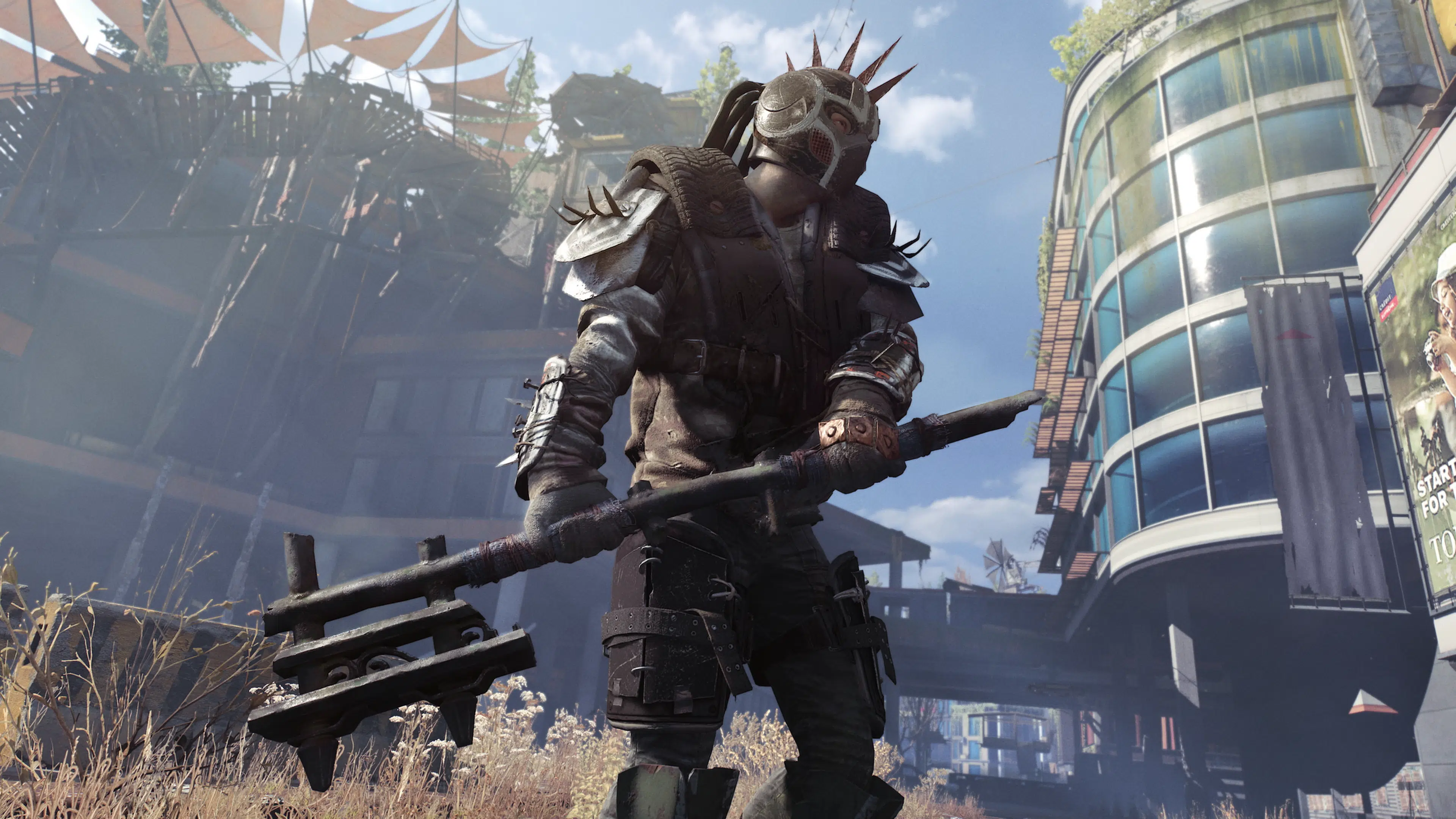While MP1st got the chance to talk to Techland about Dying Light 2 just a few months ago, when the opportunity presented itself to talk to the devs again, we jumped at the chance given how the zombie action game is one of the biggest games set for release in 2022. In our new Dying Light 2 interview, Techland talks about the game’s delay, sound design and loads more! It’s an interesting read with some very candid answers, so read on.
MP1st managed to talk to Lead Game Designer Tymon Smektala during the hands-on event we attended. Read our impressions of the game after playing it for three hours right here!
MP1st: I’ve been playing the game a little while now, and so far I’m liking what I’m seeing. I think it’s a good follow-up so far. One of the changes I’ve noticed so far is the weapon repair system. What was the thought behind changing that process of repairing weapons versus the first game, wherein the sequel it seems your more interested in players picking up new weapons as the go along.
Smektala: The explanation is actually quite simple. We have around 200 weapons, so we want players to basically see all of those beauties. So that’s one of the reasons why we made that change, and the other is we want players to go out and explore and not stick to one thing they have found; just basically keep looking for new stuff and explore every nook and cranny, and going inside every dark place.
Because this is what supports our general idea of how players could or should play the game. The rule of this world is the day is for humans, and the night is for infected. What that means is that during the night, the infected leave the dark places, they leave the interiors, but the most valuable stuff, the most interesting stuff, the most powerful weapons is hidden inside those dark places. This is our way of motivating players to actually go out during the night, to play during the night, because we have realized that for the first game there were a lot of gamers that were basically skipping the night part. It was too scary for them, and they didn’t really have the incentive to do so. So now the incentive is built into world itself. During the night you can get the best loot, and the most powerful weapons, so basically go out there and have fun and be aware that the infected are everywhere around you.
MP1st: I thought the night was really fun and scary early on in the first game when you were really weak. I liked that it was much more of a stealth, kind of runaway experience and then at night time it was all panic, get out to the safe point. As the game progress you became more powerful, it almost changed genres to where I found going out at night was like an exciting challenge, finally I wasn’t just cutting through hoards, and the super zombies.
Along those lines, I know in this game and in a lot of the press you’ve done so far, you’ve talked about how the world progression matters a lot more, and how your changes affect the future of the city. How did you approach that specific aspect of the first game in this one, where the character progression in the first game had a big effect on the gameplay. How did you apply that same principle to the world, or is it a whole new system you’ve worked out?
Smektala: I think it’s safe to say it’s a completely new system. If you look at the player progression it is actually quite similar to what we had in the first game, maybe a little more streamlined, but basically it’s the same system.
You do parkour stuff, you get parkour XP, you get new parkour skills. You fight a lot, you get combat XP points, you get new combat skills. So basically it’s like a pendulum that keeps powering itself.
But then when it comes to the world progression, or maybe your ability to change the world around you, it is more connected to choices and consequences. There are a couple of places in the game where you make choices centered around some specific facilities as we call them. These are very important buildings in the city that allow one faction or another to culture a zone within the city.
When you complete some kind of a mission at the facility you get to choose which faction get to take over it, and then which faction should take over the zone. And then when that faction goes into a zone, they start installing their gadgets, their installations in that area. So for peacekeeper those installations are focused on combat, for survivors those are parkour and traversal. You can change the city by giving various zones to various factions, and by that you change what the playground around you is.
Maybe it’s more focused on combat, maybe it’s more focused on parkour, or maybe you choose in this area that you have something that will help you fight the infected, while in the other it would be more beneficial for you if you get additional power corruptions. It is different, and it’s very closely tied to the idea of choices and consequences that we have for this game.
MP1st: Given the fact that this is a game that was announced before current-gen (PS5/Xbox Series) consoles and now we are in this weird in-between space because of the pandemic where games are kind of straddling the line between consoles. What’s the plan for any kind of cross-gen play, or cross-family, and how are you planning on supporting the two versions of the game on the PS4, Xbone, versus the Xbox Series X|S, and PS5.
Smektala:A couple of things, first we are not announcing any type of cross-gen or cross-platform play at this time.
When it comes to having the game on those platforms (old gen to newer gen,) it is possible because at the very beginning of the project we have changed our technology. We have our own new in-house engine called “C-Engine” and one of the benefits of it is it’s extremely scalable. It allows us to not only create a game for PS4, and then have the same game on PS5, but in the future if there’s PS6, then the same engine will be able to kind of scale whatever that console brings.
We knew from the start that we would have one game where as you said in a “weird space” where we would have to release a game on last-gen consoles and new-gen consoles, but we came in prepared because of the technology that we had.
But the third thing I want to say is that, I think, and I hope you will also see when you get to play the PS4 build later on today, is that we didn’t sacrifice any part of the experience. Of course maybe the resolution is different, maybe the quality of some texture is different, but the experience itself is the same on both machines, last-gen and next-gen consoles. It is basically the same game, and if you just dim your lights, sit on your couch, put on your console, I hope you’ll get immersed in the same way, and you will have the same emotion no matter the platform your playing on.
MP1st: Does that apply to things like frame-rate and ray-tracing?
Smektala: Of course PS4 and the Xbox One cannot offer the same frame-rate as next-gen consoles, but next-gen consoles will support 60FPS, and they will support ray-tracing.
But maybe it’s my personal opinion, but to be honest I think that those are very nice graphical flourishes attached to the experience, but this is not what makes the experience. I have a lot of games on my Xbox 360 that I love to play, and when I play them I’m basically all immersed in that world, because those are just games constructed in a way meant to draw you in. I hope that Dying Light 2 will be a game like that, working independently from the platform it’s on.
MP1st: I didn’t get a chance to talk to him since then, but I ended up sitting next to Jonah Scott, who’s playing Aiden the protagonist of this game. That was really cool he was here today. Are we to expect any potential guest voices, like is Idris Elba (jokingly) in this game.
Smektala: Idris is not in this game, but Rosario Dawson is in the game and we are very happy to be able to work with her on one of the characters. We also have David Belle who’s like the inventor of parkour and made it popular so you will see his face as you play the game in character named Hakon. We didn’t want to go too crazy with names and spend a lot of money on someone famous because he’s famous, that’s not our goal. We wanted to choose people that we thought would really add to the characters we have created, to have a mentor, a character that guides you into the city in the form of Hakon, who’s played by David Belle. To have Lawan, the strong female character who’s played by Rosario Dawson, this makes sense, this connect, this is what guided our choices.
MP1st: Let’s talk about the delay. It came as a surprise to a lot of people given how long the game has been in production, but I think everyone was pretty understanding given what the past two years have been. What do you think at this point the chances are of another delay or do you think that there’s any chance that-
Smektala: ZERO.
MP1sT: Zero?!?
Smektala: Yes. The game is going to be released next year in February, and that’s what we’ve focused on, that’s what we’ve worked on. So absolutely zero chance of that happening.
As you said, there was a couple of reasons for the fact that we delayed the game. Of course COVID was one of the factors, but I don’t want to put the blame on COVID because all of us had to go through it, and all of us had to face some struggle and new challenges because of the pandemic.
I think the most important reason for us is that when you work on a non-linear game, and you want to polish that, you’re actually not polishing one game, but few games at the same time. Because the same game can have so many variants, and some of those variants can be so drastically different that you have to verify every playthrough, not just 1000 times, but 1000 times multiplied by the number of variations in the game.
MP1st: Especially for games with multiple endings.
Smektala: Exactly. So this is the reason for the delay, and also this is our baby. This is our IP. The Dying Light IP is owned by our studio. So we just knew that we couldn’t release the game if it’s not ready to release.
Another reason for that, why we were looking and why we decided to postpone the release to find the quality is that Dying Light 1 was such a success. Not because of what the media was saying, but because of how players accepted, and liked, and loved the game. I think we have one of the most active and vocal communities out there, and to be honest the pressure is way higher than it was with the first game because we understand we cannot disappoint those guys. I know that hearing about the delay is disappointing, but I think it’s better than getting a game which wasn’t meant to be released in the first place, that wasn’t ready to be released.
MP1st: Speaking of the first game, what kind of enhancements can we expect for the next-gen enhancement version?
Smektala: There will be a separate announcement regarding this, so we’ll let those guys do their work and make the announcement when they’re ready for it. I think what you can expect is, you can expect to get what you would expect. Now you can’t expect a full remake of something that’ll completely change the game. It will still be the same game, just upgraded and use the advantage of the next-gen consoles. I think this will be the swan song of Dying Light 1 because then we will move to Dying Light 2 Stay Human. We have a lot of plans regarding Dying Light 2 Stay Human after release, but of course the important thing for us right now is just to release the game and make sure it is as good as possible for our team, as good as we envisioned it. Because if the first step isn’t solid, then having any plans for post-launch, DLC, additions, whatever, doesn’t make sense. The base game needs to be good and we are focusing on just that at this point.
MP1st: It might be a weird fit, but you kind of have to wonder with every game coming out these days, have you considered any sort of virtual reality, augmented reality application for the franchise?
Smektala:: Dying Light is best game for virtual reality, but also the worse game for virtual reality. This is a game that’s meant, as I said before, this is a game meant to draw you into this world, a game meant to immerse in it totally. So of course, it kind of makes sense with virtual reality, which adds to the immersion in extreme ways, but also this is a game about moving very fast and doing very crazy acrobatics stunts.
This is what is historically problematic with VR, because when people start playing that game, they start feeling motion sickness and all of that stuff. Even for the first game we had a version of Dying Light running on VR. It was really amazing for the first five to ten minutes, you really felt you are in this city surrounded by infected around you. But after those five and ten minutes of playing it was a really hard time for a lot of people, so we said maybe that’s not it. Maybe at some point we will branch off and do something with the IP that makes sense for the VR, but again, nothing like that is happening at this point because we are focusing on the release of Dying Light 2 Stay Human.
MP1st: So I got to ask some questions about the multiplayer. Are there any plans for any kind of a Battle Pass or Season Pass?
Smektala: Nothing that we are announcing at this point, what we are saying about the online is that it supports four player online co-op. You will be able to play basically the “whole” game from start to finish. When I say “whole” game I do these funny faces because there’s a short section at the very beginning of the game, the prologue and tutorial that introduce you to the story, the characters, and the gameplay mechanics. So that part is played in single-player, but as soon as it ends you move on to a full co-op experience. You can play the game with your friends, or complete strangers.
I think one very interesting thing about co-op is how well it supports the choices and consequences you make in this game. If you have a game about choices, someone has to make that choice, someone has to make that decision. So it’s always the host of the session. Let’s imagine it’s your session and you invite me to play with you and I play with you and we come to a point where there is a decision is to be made. So what I can do is of course, besides screaming at you on the headset, is that we have some solutions that allow me to kind of vote or suggest to you what I would choose. You make the decision, all of us get to see that outcome and that decision stays in your save game and you will complete the game in your own canon version of the experience.
But then the next weekend I will invite you to play in my game and now I get to make the decision, and now you get to see all the version of the story, all the options, all the other decisions we can make. For me the optimal way to play the game is first to play by yourself or with your friends, but as the host and get your version of Dying Light Stay Human, and then hop online and start joining other people and start experiencing all of the other variations the game has to offer.
My personal bet on this is that I will bet $1000 that this will be appreciated by the gamers and give them the meaning to play the game for hundreds, and thousands of hours.
MP1st: How did the adapting the gameplay from the first game into this one, how directly did the multiplayer affect the game design and mechanics moving over from the last one into this one, and what did that process look like.
Smektala: I’m afraid I don’t have like any juicy story for you because this is not our first co-op game. Maybe it is our first choices and consequences game, but this is not our first co-op game because we had Dead Island and we had Dying Light, so we have quite a lot of experience in that general type of gaming.
So we look at all of the data from those previous games and analyze them, trying to see what excite people most and see what they are doing when they play and build mechanics around this. Nothing really fancy, just making sure we don’t mess this thing up. I think we kind of made it quite well in the first game, so the goal here was not to mess it up, and to deliver the same experience to players and to create a platform for them, for us to expand upon after the game is released.
One of the things we are doing which is kind of new is the idea of character classes. For the release it will be quite light, but we hope to expand on it later. As you play the game you will see that you gather different pieces of outfit, gear. Cap, or shoe, or maybe pants or something. Those are meant to support specific types of gameplay, so maybe they give you more damage, or less range, or maybe they make you use stealth a bit better because it takes a little longer for enemies to discover you.
You can specialize in different classes or different style of gameplay, and when you play online you can actually try to create companies, or teams with different specialties that cover each other’s backs and cooperate with each other to achieve goals.
MP1st: Talking about the build I played today, I really enjoyed the sound design, which is something I wasn’t expecting to have much of a focus. That squishy slop sound when I cut into an infected for the first time was really satisfying. What was the philosophy in the sound design and how do you think that applies to something like multiplayer where there’s multiple people going at it at once and that layering of sounds.
Smektala: Of course you could always mix it up so you mostly hear your sounds and this is exactly what we’re doing, like a whole system that tries to understand what would be the most juicy for the player to hear in their headphones.
What I mean is that feeling of hitting something organic with something very deadly, this is absolutely something we wanted to capture in the game when it comes to the sounds of the combat. Our sound designer are actually quite crazy. For example they’ll buy those big pieces of pig meat and just hit on it with different objects trying to capture the most “juicy,” weighty sound. Yeah, they are crazy like that.
I think it’s also worth mentioning we are working with Olivier Deriviere, who is a French video game music composer who’s worked on some quite interesting games like A Plague Tale: Innocence and Vampyr. He’s also worked with Dontnod Studios on their game Remember Me. He has quite a lot of interesting games to his credit, and I said he’s a video game music composer because what’s unique about him is that he understands video games, and he understands video games are interactive.
When he comes into a project he’s not just giving us his music, he asks for systems that allow his music to be interactive and react to different things players are doing. There are some solutions that change the music regarding how you fight, how you run through the city, and also change the music when play in co-op, when you play in multiplayer. By the way, he’s also crazy, like it seems like all our sound designers are crazy. The thing he did is he created a special instrument just for the game, trying to capture the modern dark ages era. He created this medieval, very awkwardly-looking instrument that you play using medieval metals, like tapping the strings like they did in medieval times, but it’s all made from modern materials. It’s like the musical version, or sound version of the modern dark ages.
A lot of work went into all aspects of our sound designs and it seems like a job well done since you appreciated it.
MP1st: Lastly, assuming this game takes off like the first one and I assume it will. What are your plans for the future of the franchise?
Smektala: Sorry, but I don’t want to get too far ahead of myself, because really we could have a conversations about it that would last the whole evening. Of course we have plans, and maybe some work has been started on that, but all of this doesn’t make sense unless the base game is a success. We can talk about it after the game is released, let’s just focus on this one and we need to make sure that you like it, and I hope you like it when it releases.
We’d like to thank Techland for inviting us to check the game out, and for sitting down for an interview. Dying Light 2 will be released this February 4, 2022 on the PS4, PS5, Xbox One, Xbox Series X|S, Switch, and PC.




